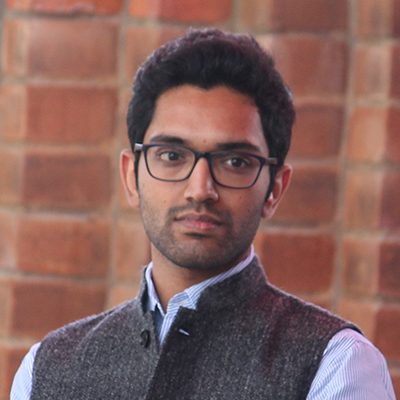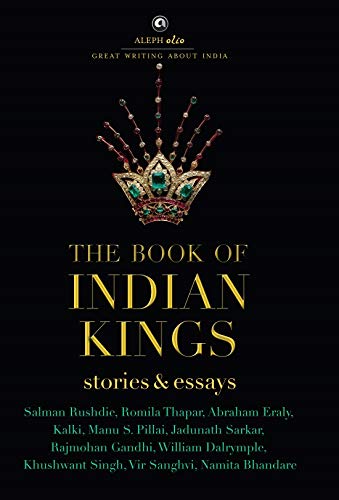
The Book of Indian Kings comprises stories and essays about some of the greatest rulers and statesmen in the history of India. Beginning with an essay on one of the country’s iconic rulers, the Mauryan emperor, Ashoka, by our greatest living historian, Romila Thapar, this volume brings together some of the finest writers of our time on a glittering array of monarchs, including Salman Rushdie on Emperor Akbar, Khushwant Singh on Maharaja Ranjit Singh, William Dalrymple on Bahadur Shah Zafar, Rajmohan Gandhi on Tipu Sultan, Jadunath Sarkar on Chhatrapati Shivaji, and Manu S. Pillai on Krishnadeva Raya. The Emergence of Mauryan India by Romila Thapar The First Hindu Empire by Abraham Eraly Raja Raja Chozhar by Kalki Krishnadeva Raya by Manu S. Pillai The Shelter of the World by Salman Rushdie Shivaji and His Times by Jadunath Sarkar Tipu Sultan by Rajmohan Gandhi The Last Mughal by William Dalrymple Ranjit Singh, Maharaja of the Punjab by Khushwant Singh Madhavrao Scindia by Vir Sanghvi and Namita Bhandare
Authors
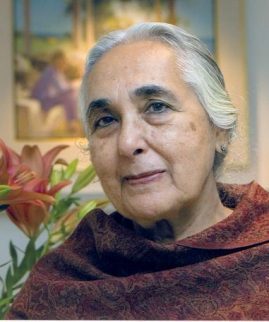
Romila Thapar is an Indian historian and Professor Emeritus at the Jawaharlal Nehru University, New Delhi. A graduate from Panjab University, Dr. Thapar completed her PhD in the School of Oriental and African Studies at the University of London. Her historical work portrays the origins of Hinduism as an evolving interplay between social forces. Her recent work on Somnath examines the evolution of the historiographies about the legendary Gujarat temple. Thapar has been a visiting professor at Cornell University, the University of Pennsylvania, and the College de France in Paris. She was elected General President of the Indian History Congress in 1983 and a Corresponding Fellow of the British Academy in 1999.
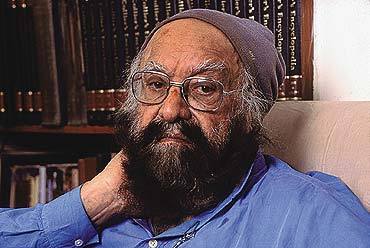
Khushwant Singh, (Punjabi: ਖ਼ੁਸ਼ਵੰਤ ਸਿੰਘ, Hindi: खुशवंत सिंह) born on 2 February 1915 in Hadali, Undivided India, (now a part of Pakistan), was a prominent Indian novelist and journalist. Singh's weekly column, "With Malice towards One and All", carried by several Indian newspapers, was among the most widely-read columns in the country. An important post-colonial novelist writing in English, Singh is best known for his trenchant secularism, his humor, and an abiding love of poetry. His comparisons of social and behavioral characteristics of Westerners and Indians are laced with acid wit.
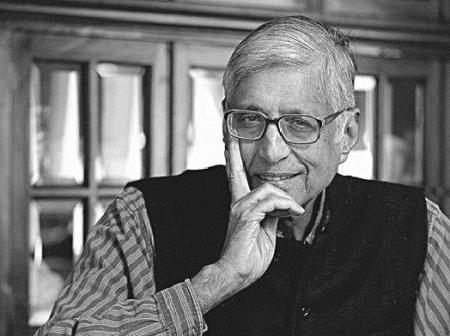
Rajmohan Gandhi (born 1935)is a biographer and grandson of Mahatma Gandhi, and a research professor at the Center for South Asian and Middle Eastern Studies, University of Illinois at Urbana-Champaign, USA. Until end-December 2012 he taught political science and history at the University of Illinois and divided his time between India and the United States.
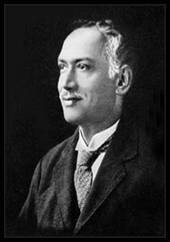

Tamil language Novel Writer, Journalist, Poet & Critic late Ramaswamy Aiyer Krishnamurthy also known as ‘Kalki’. He derived his pen name from the suffixes of his wife name Kalyani and his name Krishnamurthy in Tamil form கல்யாணி and கிருஷ்ணமூர்த்தி as Kalki (கல்கி). His name also represents “Kalki avatar”, the tenth and last avatar of the Hindu God Vishnu. His writings includes over 120 short stories, 10 novelettes, 5 novels, 3 historical romances, editorial and political writings and hundreds of film and music reviews. Krishnamurthy’s witty, incisive comments on politics, literature, music and other forms of art were looked forward to with unceasing interest by readers. He wrote under the pen names of ‘Kalki’, ‘Ra. Ki’, ‘Tamil Theni’, ‘Karnatakam’ and so on. The success that Krishnamurthy attained in the realm of historical fiction is phenomenal. Sixty years ago, at a time when the literacy level was low and when the English-educated Tamils looked down on writings in Tamil, Kalki’s circulation touched 71,000 copies – the largest for any weekly in the county then – when it serialised his historical novels. Kalki had also the genius to classify the historical and non-historical events, historical and non-historical characters and how much the novel owes to history.
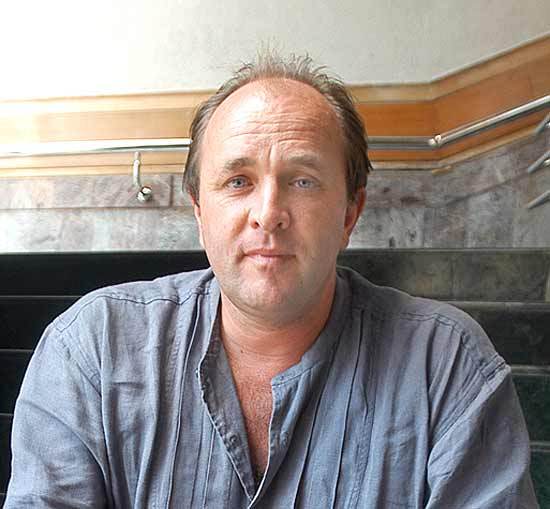
William Dalrymple was born in Scotland and brought up on the shores of the Firth of Forth. He wrote the highly acclaimed bestseller In Xanadu when he was twenty-two. The book won the 1990 Yorkshire Post Best First Work Award and a Scottish Arts Council Spring Book Award; it was also shortlisted for the John Llewellyn Rhys Memorial Prize. In 1989 Dalrymple moved to Delhi where he lived for six years researching his second book, City of Djinns, which won the 1994 Thomas Cook Travel Book Award and the Sunday Times Young British Writer of the Year Award. From the Holy Mountain, his acclaimed study of the demise of Christianity in its Middle Eastern homeland, was awarded the Scottish Arts Council Autumn Book Award for 1997; it was also shortlisted for the 1998 Thomas Cook Award, the John Llewellyn Rhys Prize and the Duff Cooper Prize. A collection of his writings about India, The Age of Kali, won the French Prix D’Astrolabe in 2005. White Mughals was published in 2003, the book won the Wolfson Prize for History 2003, the Scottish Book of the Year Prize, and was shortlisted for the PEN History Award, the Kiryama Prize and the James Tait Black Memorial Prize. William Dalrymple is a Fellow of the Royal Society of Literature and of the Royal Asiatic Society, and is the founder and co-director of the Jaipur Literature Festival. In 2002 he was awarded the Mungo Park Medal by the Royal Scottish Geographical Society for his ‘outstanding contribution to travel literature’. He wrote and presented the television series Stones of the Raj and Indian Journeys, which won the Grierson Award for Best Documentary Series at BAFTA in 2002. His Radio 4 series on the history of British spirituality and mysticism, The Long Search, won the 2002 Sandford St Martin Prize for Religious Broadcasting and was described by the judges as ‘thrilling in its brilliance... near perfect radio’. In December 2005 his article on the madrasas of Pakistan was awarded the prize for Best Print Article of the Year at the 2005 FPA Media Awards. In June 2006 he was awarded the degree of Doctor of Letters honoris causa by the University of St Andrews “for his services to literature and international relations, to broadcasting and understanding”. In 2007, The Last Moghal won the prestigous Duff Cooper Prize for History and Biography. In November 2007, William received an Honourary Doctorate of Letters, honoris causa, from the University of Lucknow University “for his outstanding contribution in literature and history”, and in March 2008 won the James Todd Memorial Prize from the Maharana of Udaipur. William is married to the artist Olivia Fraser, and they have three children. They now live on a farm outside Delhi.
